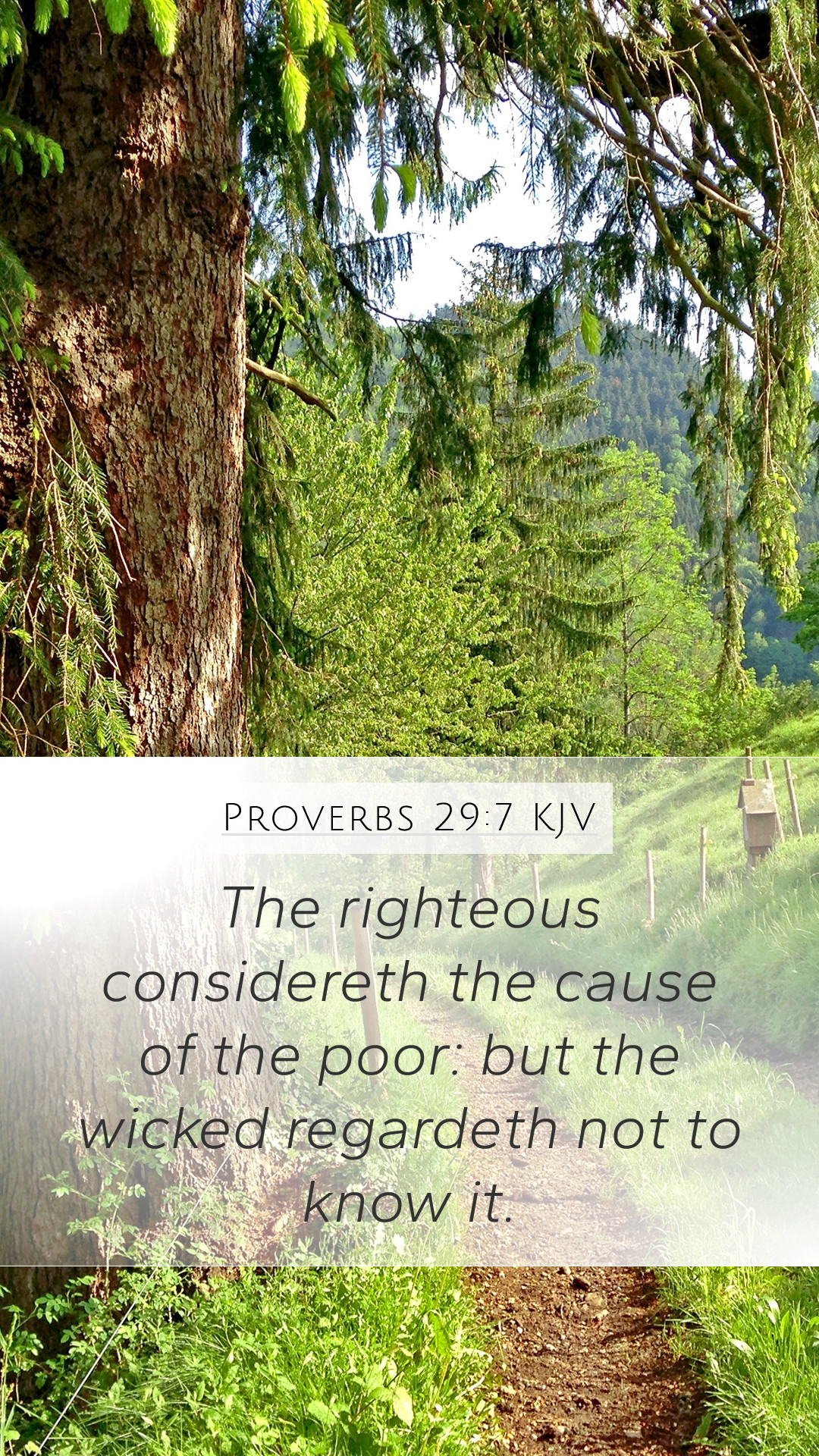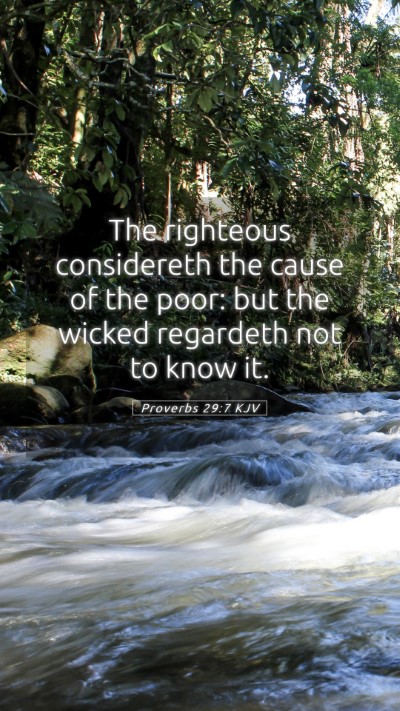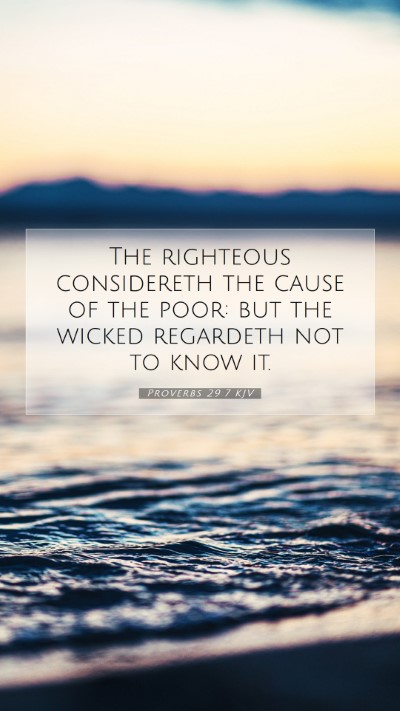Understanding Proverbs 29:7
Proverbs 29:7 states: "The righteous knoweth the cause of the poor: but the wicked regardeth not to know it." This verse encapsulates a vital moral principle regarding social justice and empathy towards those in need. Through a combined exploration of historical context, theological insights, and practical application, we gain profound Bible verse meanings and interpretations of this scripture.
Verse Analysis and Commentary
This verse contrasts two distinct attitudes towards the poor: that of the righteous and the wicked. Here's a breakdown of what these attitudes imply:
- The Righteous: According to Matthew Henry's Commentary, the righteous are characterized by their awareness and understanding of the plight of the poor. They engage with their community and seek to comprehend the underlying issues that lead to poverty.
- The Wicked: On the other hand, Albert Barnes points out that the wicked person chooses ignorance. They are indifferent to the suffering around them and lack the moral imperative to investigate or address the needs of the less fortunate.
Theological Insights
This verse encapsulates key elements of Biblical exegesis, particularly regarding justice and compassion. The righteous action reflects the heart of God, who cares deeply for the marginalized and oppressed. As stated in Adam Clarke's Commentary, the Lord's people are called to align their hearts with His by actively seeking social justice.
The righteous not only acknowledge the existence of poverty but also seek to understand its root causes. This understanding can lead to actionable insights in Bible study resources and materials focused on social ethics and community service.
Practical Application
Understanding this verse prompts believers to reflect on their own attitudes toward the poor. Here are some practical applications to consider:
- Engaging in community service to directly impact the lives of the poor.
- Educating oneself about the systemic issues that contribute to poverty, fostering a sense of responsibility.
- Supporting policies and initiatives that promote social justice and equity, aligning actions with Biblical teachings.
Cross References
To further grasp the implications of Proverbs 29:7, the following scriptures are closely related:
- Proverbs 31:8-9: Addresses speaking up for those unable to speak for themselves.
- Luke 4:18: Jesus declares His mission to bring good news to the poor.
- James 1:27: Encourages taking care of orphans and widows, indicating the nature of pure religion.
Conclusion
In summary, Proverbs 29:7 challenges us to develop a righteous understanding of the needs of the poor. By reflecting on the teachings found in both the Old and New Testaments, we foster a comprehensive Bible verse commentary that extends beyond mere knowledge. It inspires us to action, motivating a deeper Bible study insights that reflect the heart of God and apply His ethics in our daily lives.


